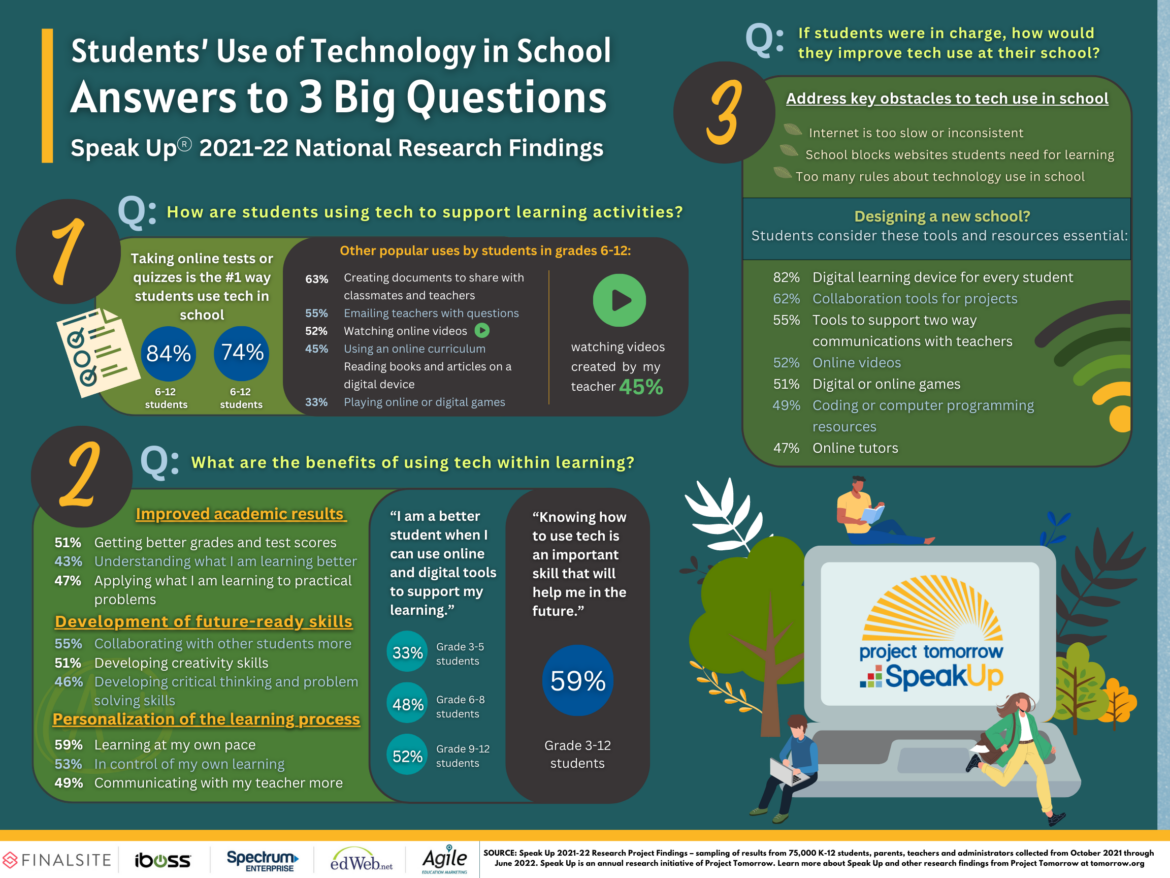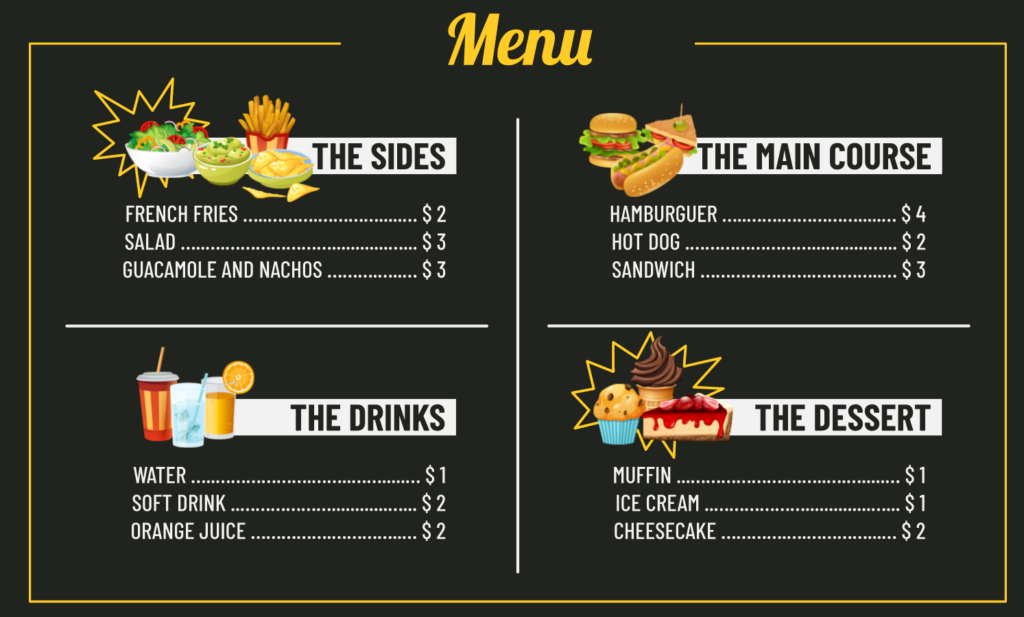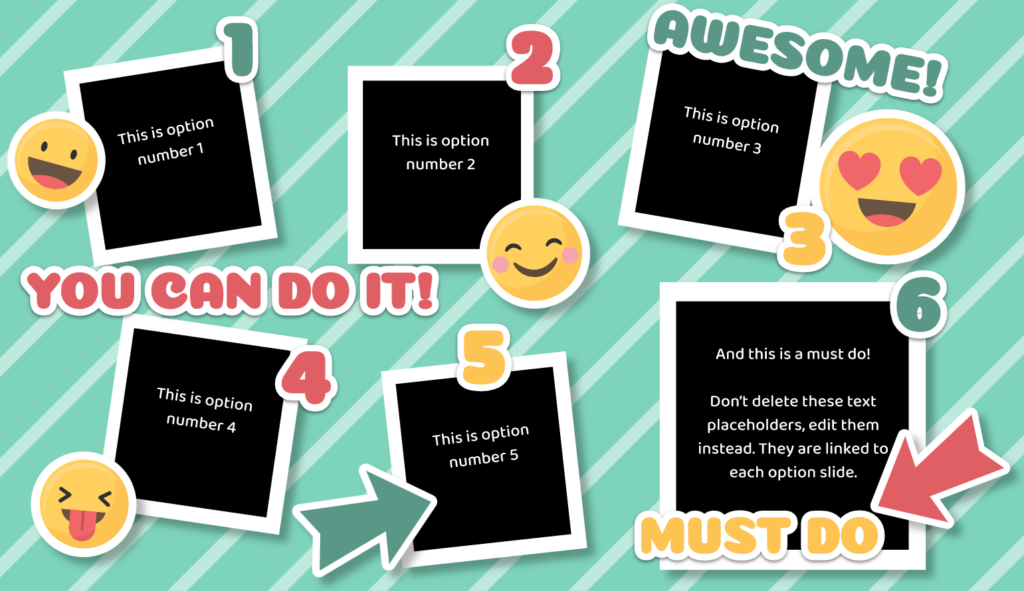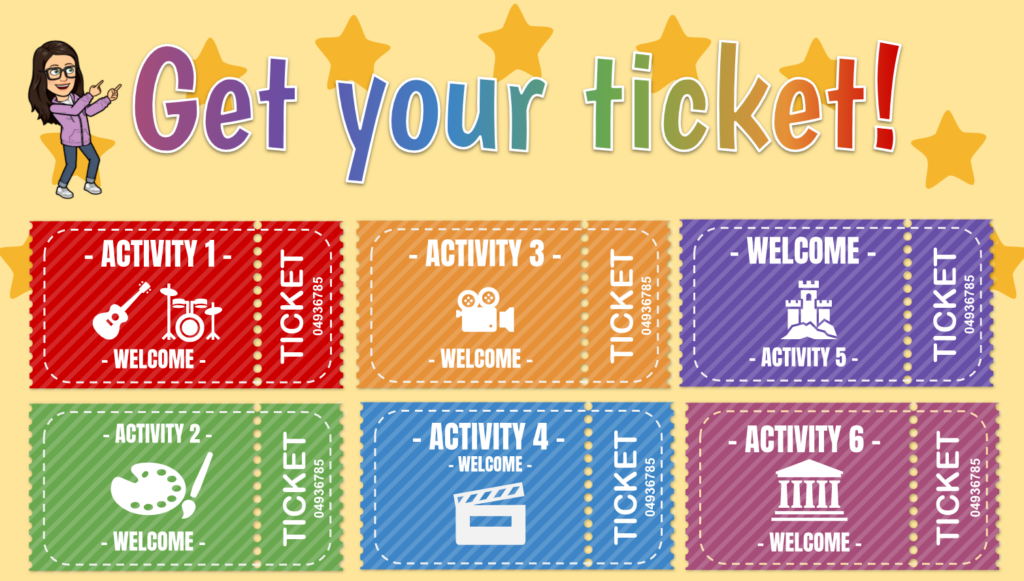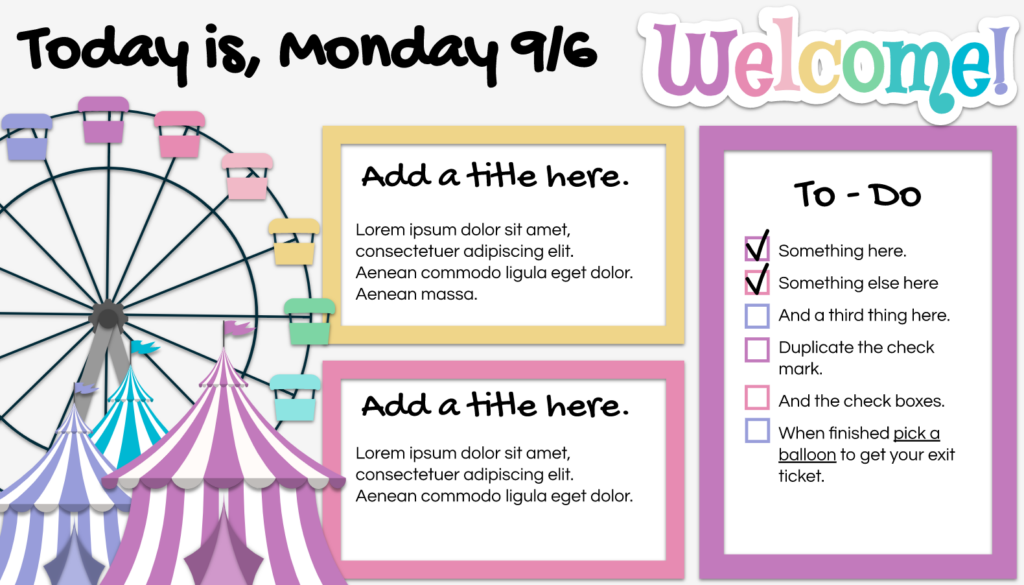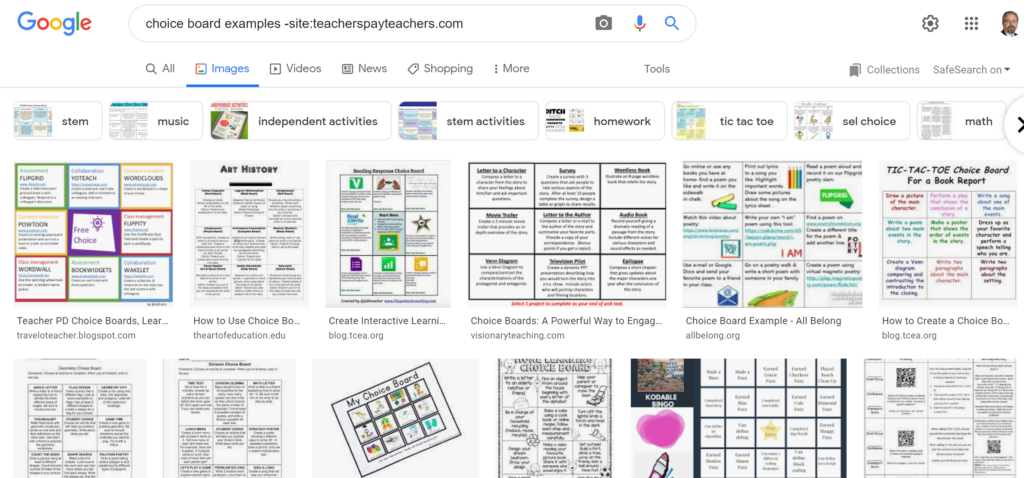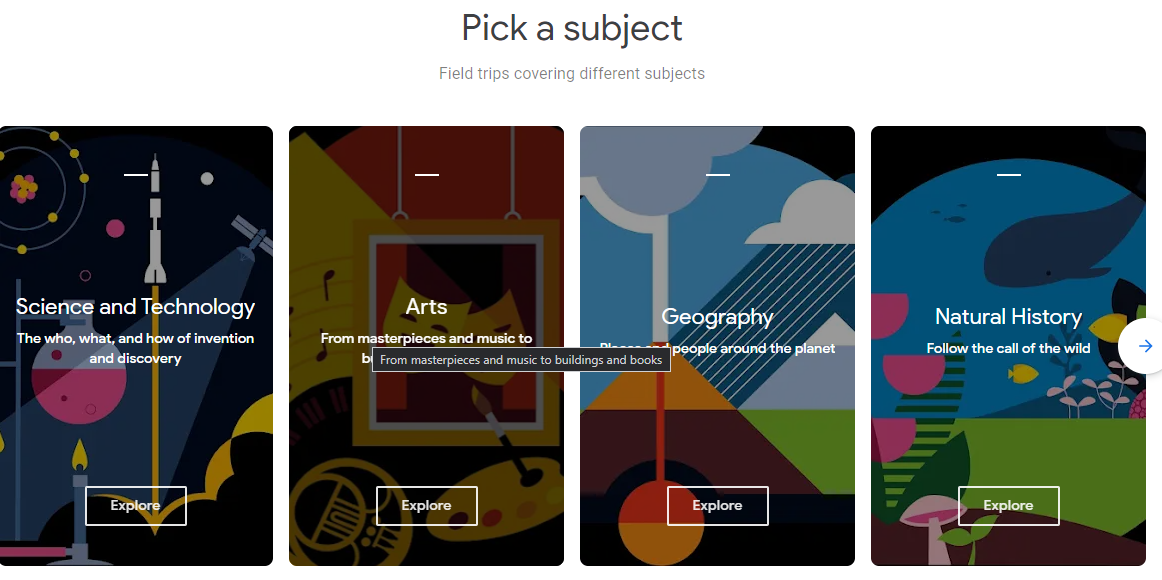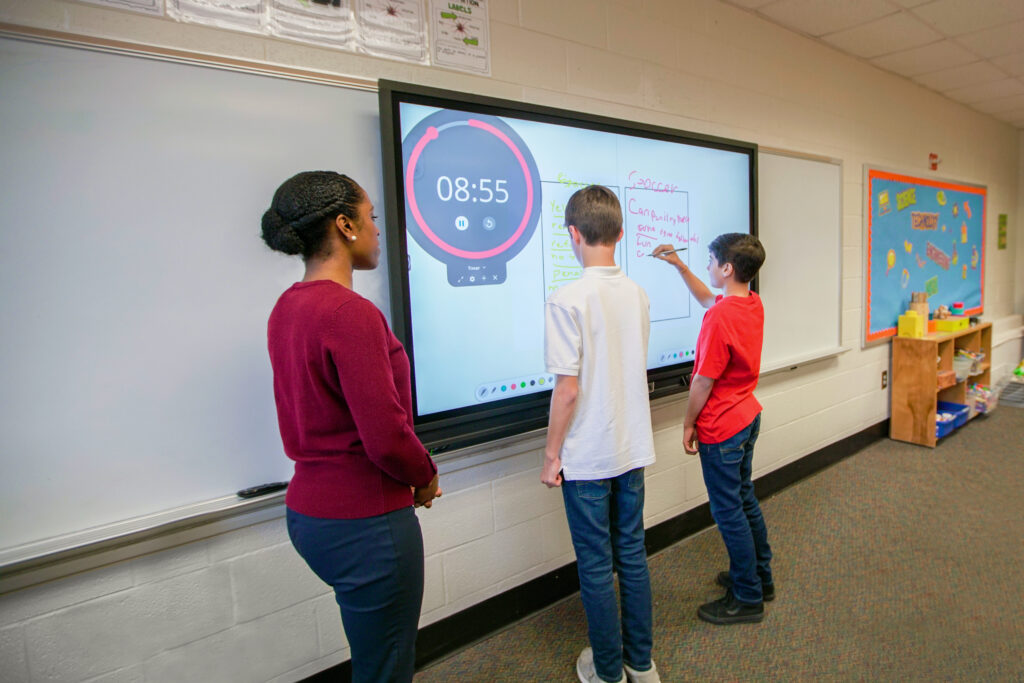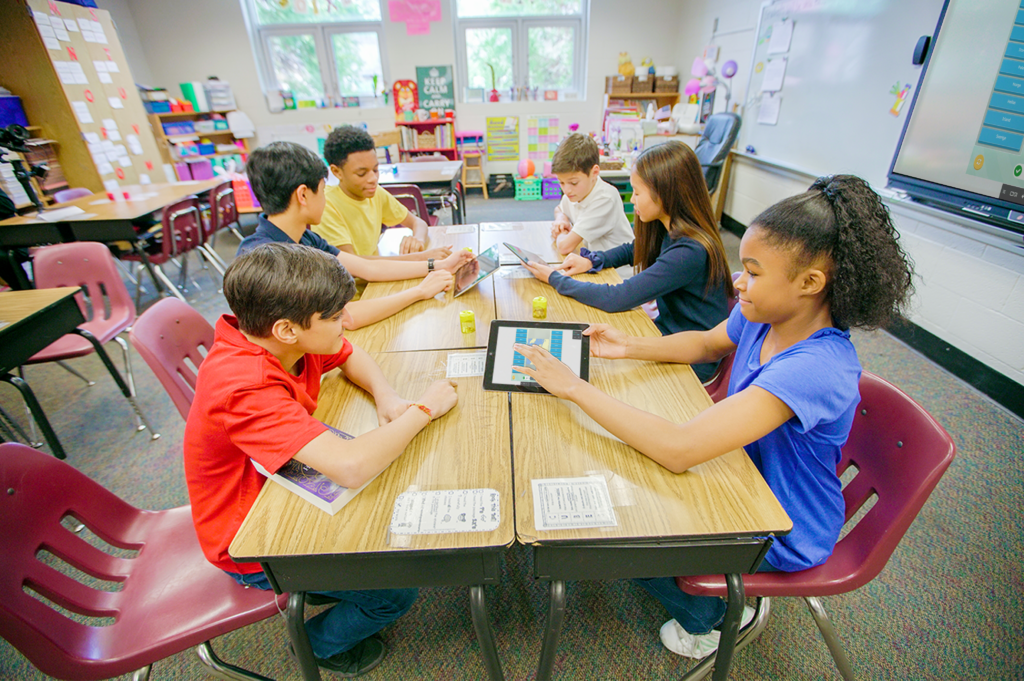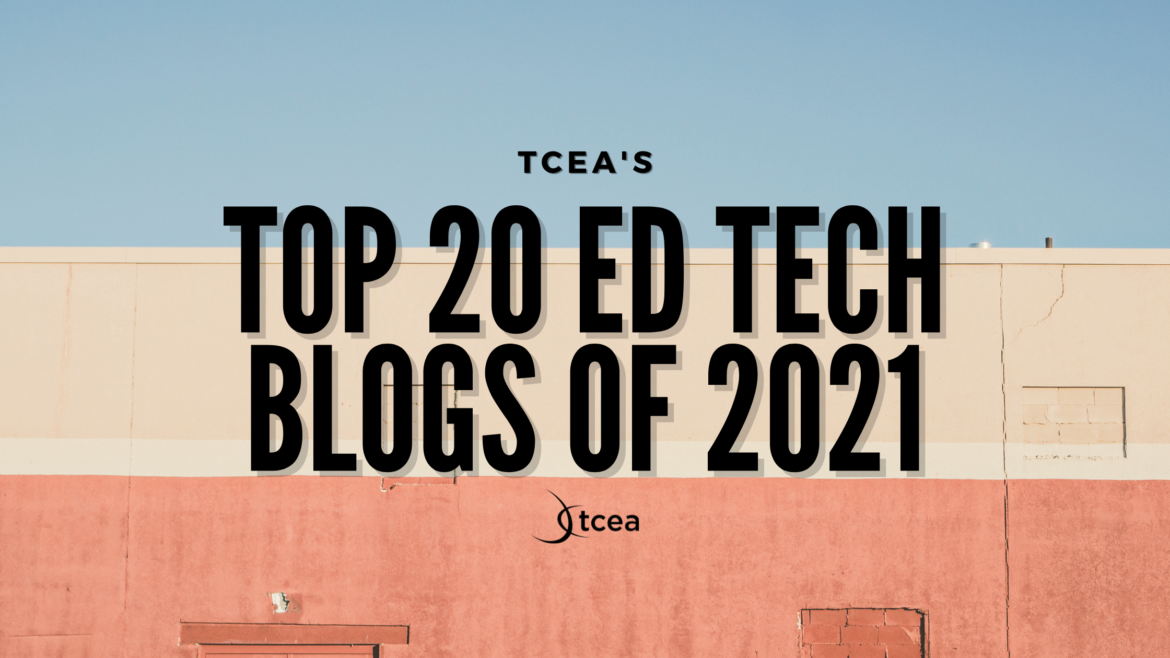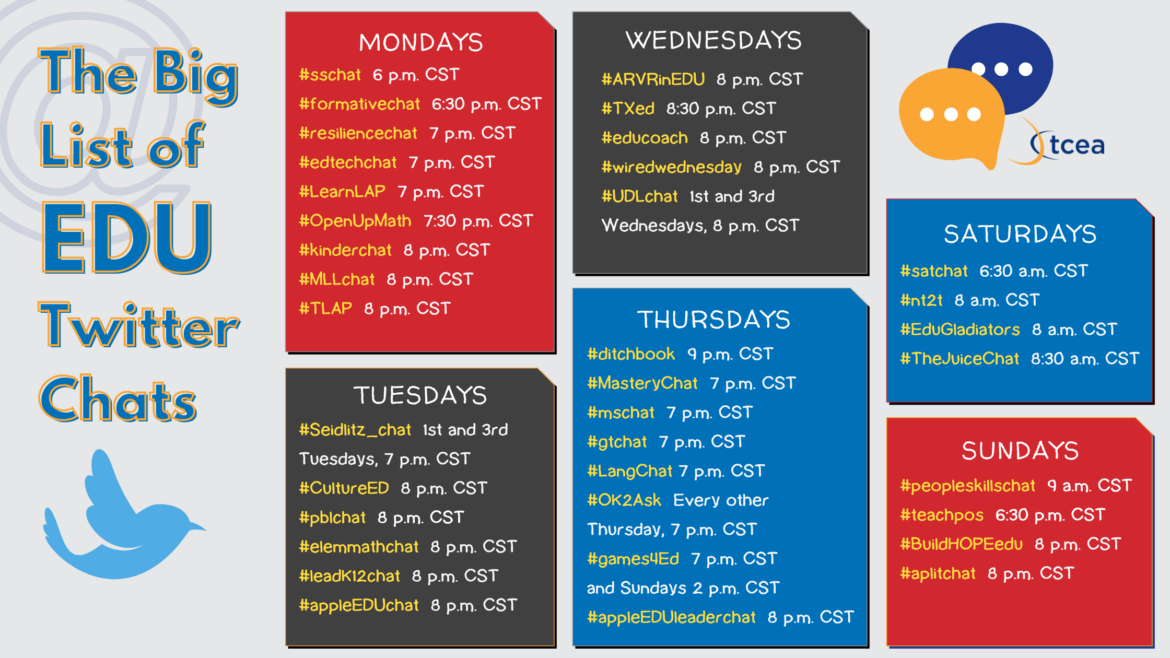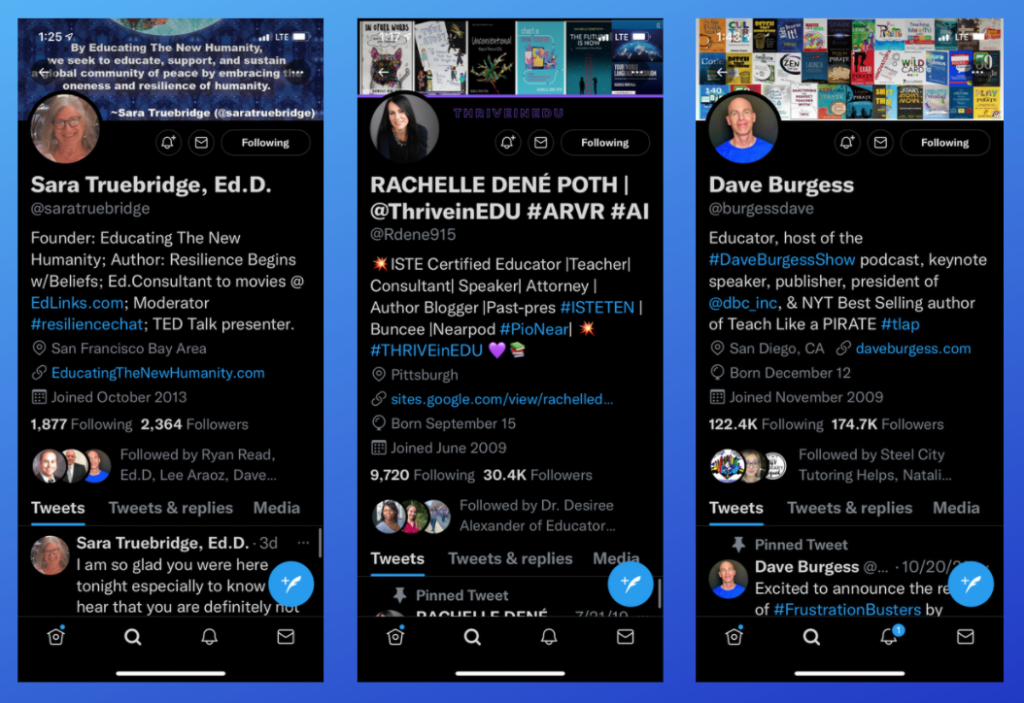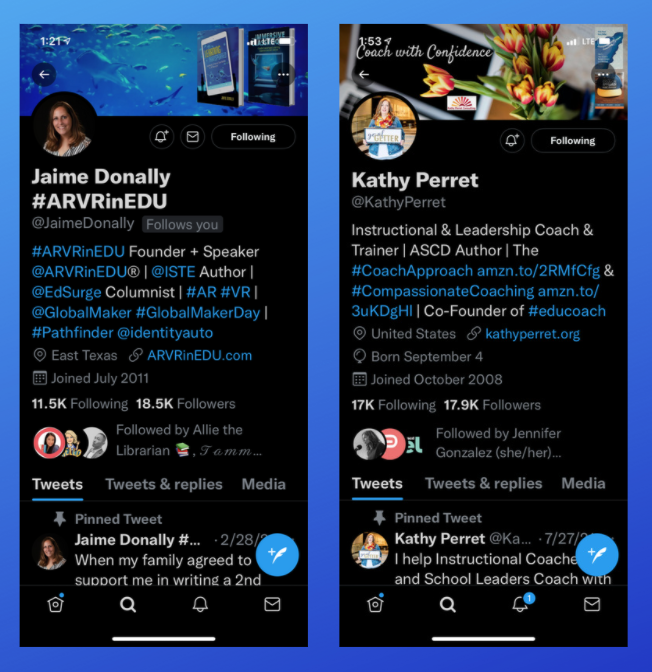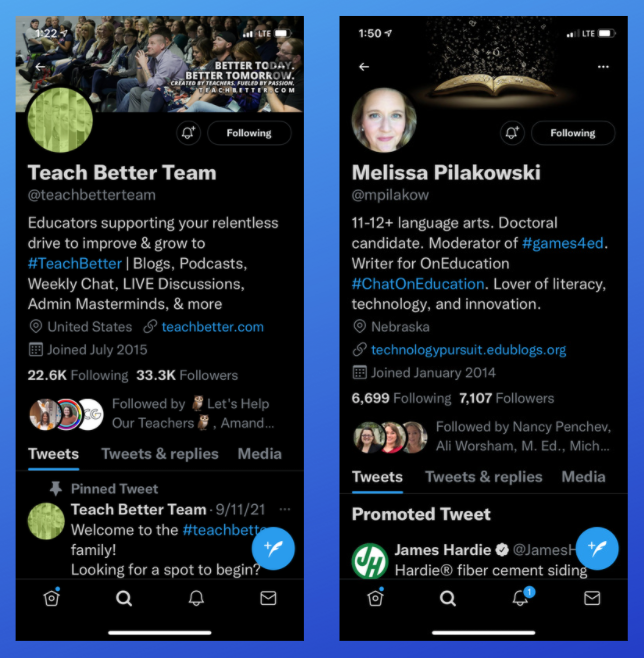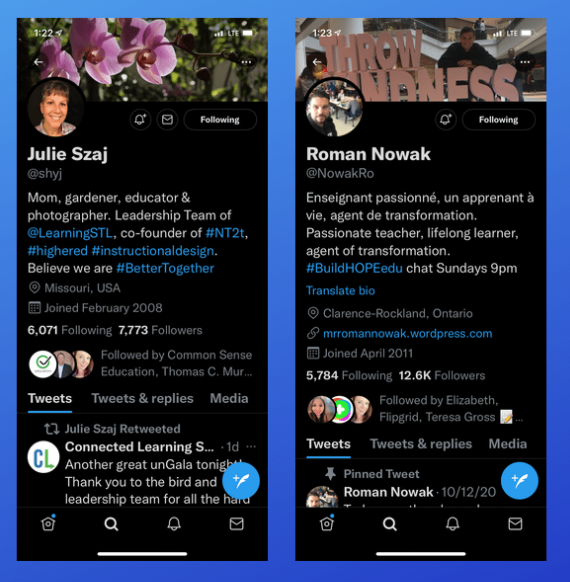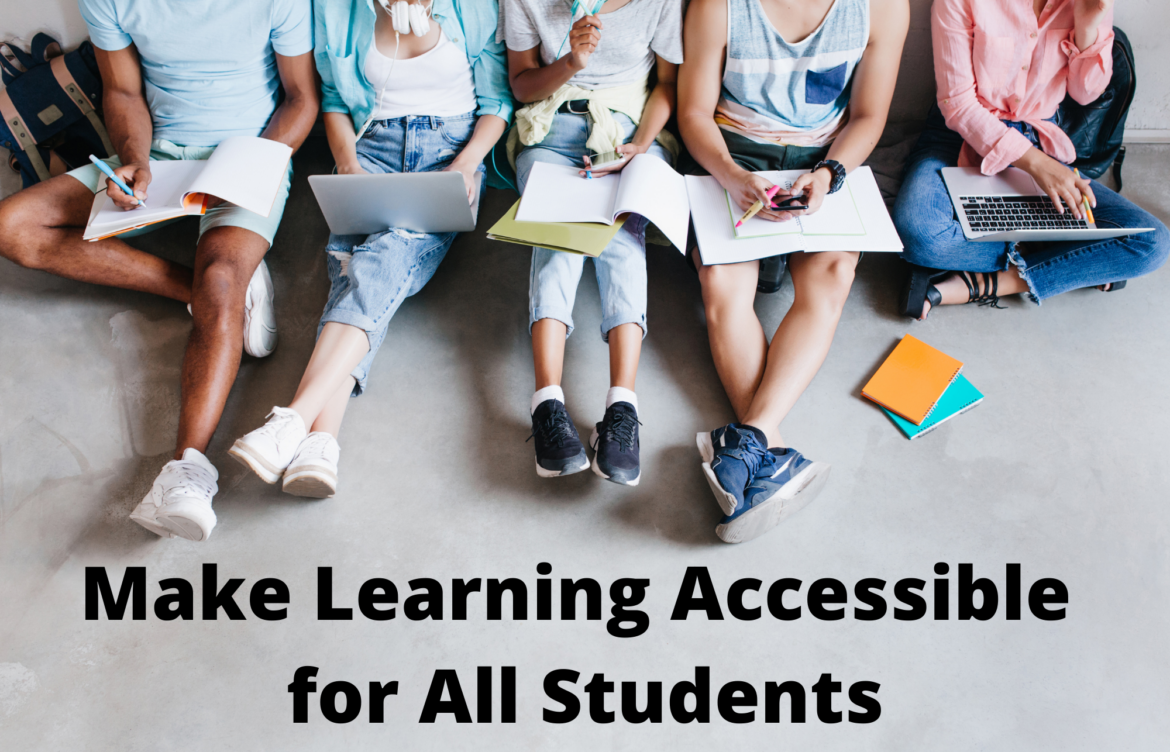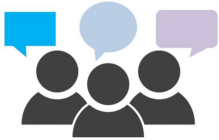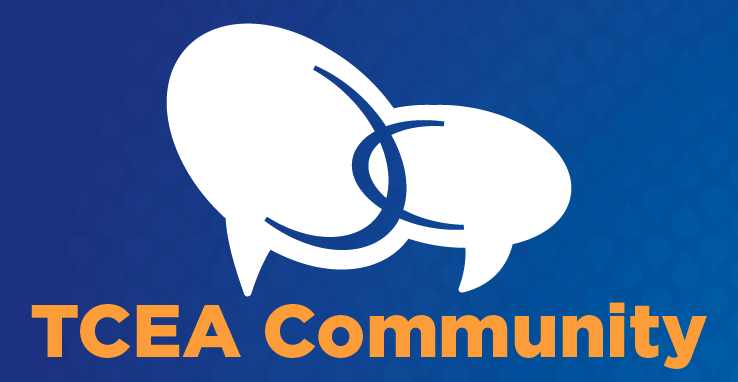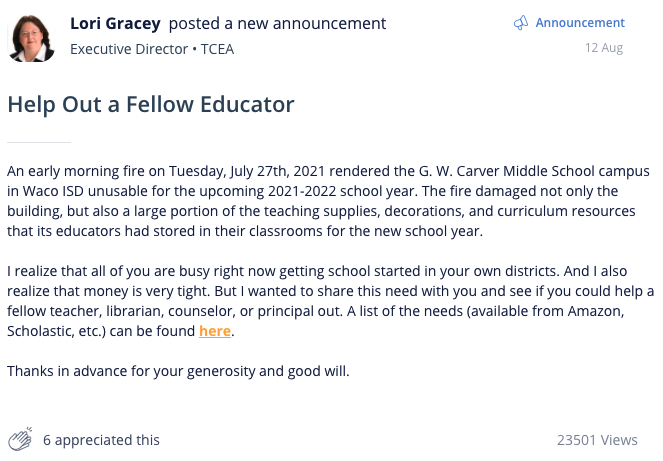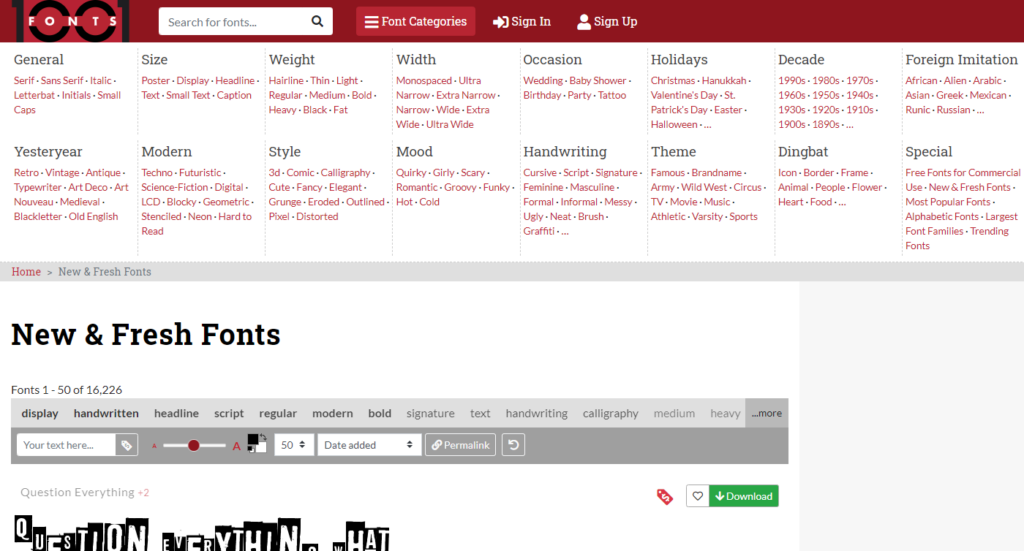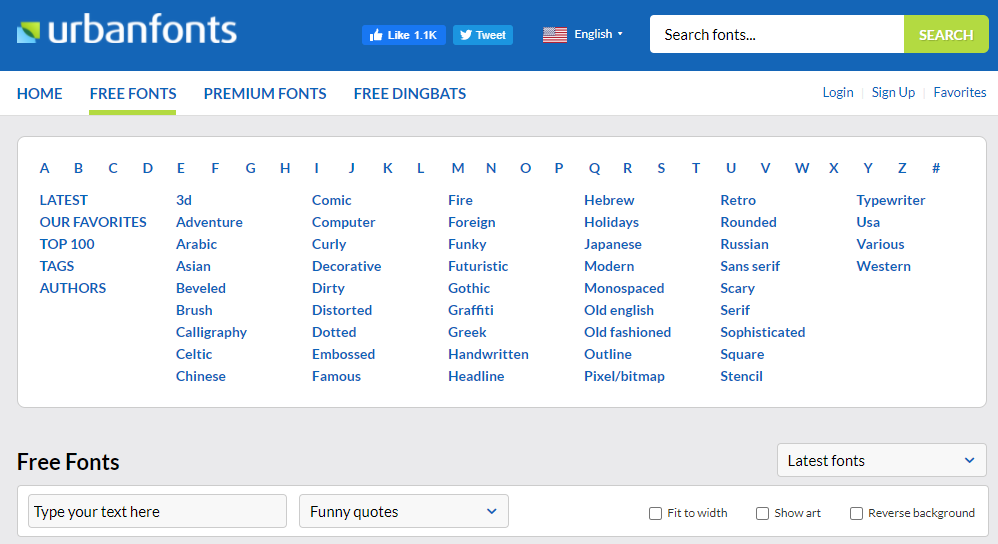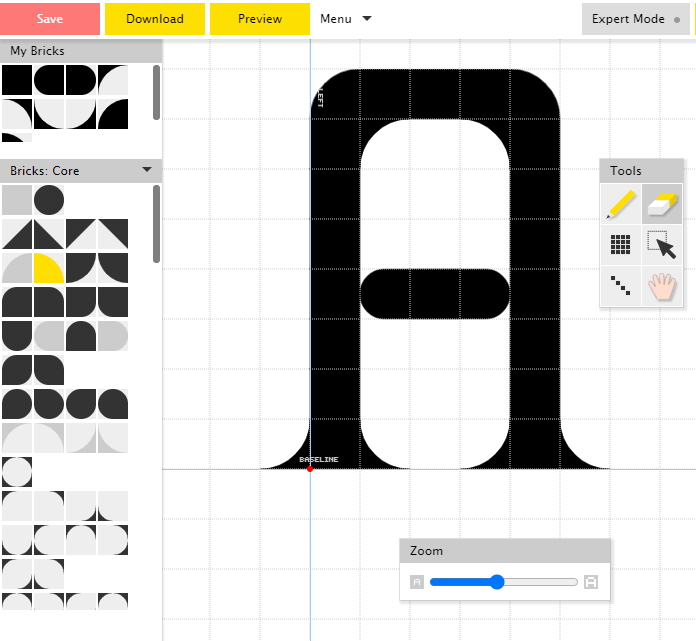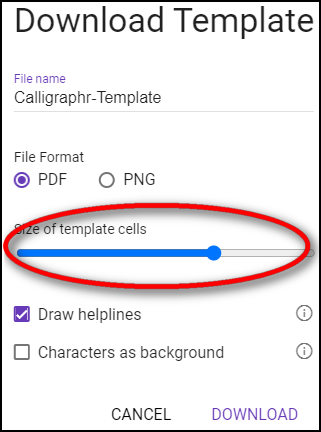It is well-known that in response to the pandemic many aspects of our social, economic, and professional lives changed overnight. From working remotely from home to buying groceries online and having our pharmacy prescriptions delivered, we adopted new ways of doing everyday activities. And it appears that many of these new behaviors are here to stay. The reason? People like the convenience, flexibility, and effectiveness of these innovations.
How Did the Pandemic Change Schools?
The same is true for our schools. The pandemic resulted in a seismic shock to the traditional school paradigm. To support continuity of learning, school districts provisioned unprecedented numbers of personally assigned tablets, laptops, and Chromebooks for students to use to log into virtual classes, access online learning materials, and facilitate communications with teachers and classmates.
Though far from perfect, this great national experiment in virtual learning yielded new insights into our current education systems and produced some “ah-hah” moments for educators interested in using technology more effectively within learning. As reported in the Speak Up® Research findings from Project Tomorrow®, school districts now have a greater focus on the home Internet connectivity challenges in their community, and thus, are now doubling down on mobile hotspots, wifi in school parking lots, and partnering with local businesses and libraries to provide Internet access points for students.
Teachers developed new skills using technology during that time, not just to engage students in learning but as a learning platform, and that has changed their perspective on the potential of technology within learning. Parents acquired a more in-depth awareness of their child’s education and school-based learning life from that kitchen table view of school.
What Does the Research Say?
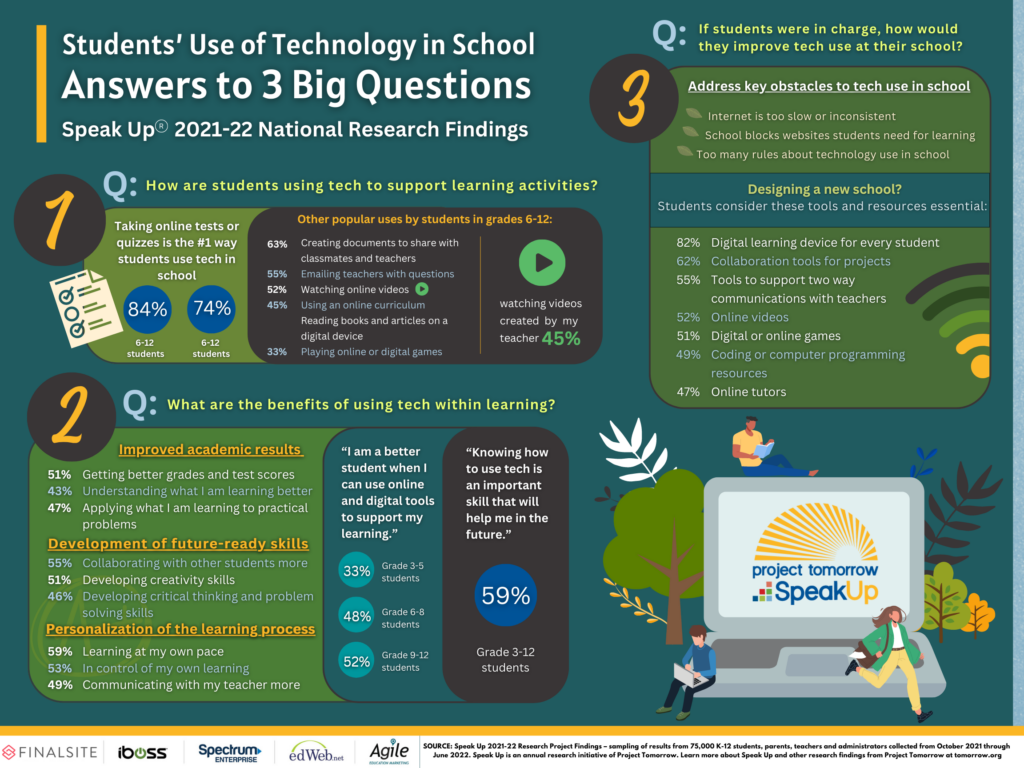
Despite these important lessons learned, there was initially a nostalgic pull by some to revert to the way schools traditionally looked and functioned in February 2020. But that goal is not realistic or even possible today. Just as the banks, grocery stores, and medical providers are leaning into the new behaviors of their consumers, so must our schools.
Educators are increasingly coming to that same resolution as we start to put the pandemic in the rear-view window. According to 89% of district administrators on the Speak Up Research surveys from the 2021-22 school year, the pandemic and the resulting disruptions to traditional education have significantly and sustainably changed K-12 education. The steps undertaken to support continuity of learning have left an indelible mark on the ways teachers teach, parents engage, administrators lead, and students learn.
This long tail of the pandemic and the resulting shifts to more technology-based instruction have forever changed our schools. Many educators are already capitalizing on this “moment in time” to implement new innovations to address the vexing challenges of student engagement, empowerment, and equity in learning experiences. This opportunity to lean into technology to support improvements in education is supported by the Speak Up 2021-22 Research findings and was front and center at our recent annual Congressional Briefing.
What Do Students Think?
In addition to sharing key national research findings at the virtual briefing, I also facilitated a panel discussion with students from across the country to learn about their perceptions of school today and their aspirations for more efficient and effective learning experiences.
We were pleased to have on this year’s student panel an engaging 8th grader, Sabino, from one of our Texas Speak Up partnering districts, the Ferris Independent School District. Sabino shared the many ways that he uses technology to support his learning in school, recognizing that his school’s commitment to innovative technology usage is helping him develop stronger creativity skills through projects and hands-on learning activities.
As part of the conversation, I asked our student panelists to dream big about what a future school could look like, and to provide their vision for the role of technology in that ultimate learning environment. For Sabino, it was all about gamification of the learning process. He sees great potential in bringing more game-based experiences into the classroom to engage students in learning and provide a way for students to drive their own learning process.
Listening to Students About Learning
Like his peers on the panel and nationwide, this focus on student ownership of the learning process is reflective of students’ personal, out-of-school experiences with technology. For example, Sabino has taken online courses on his own to learn more about computer science as a future career field. This reality is important for educators to recognize. For today’s students, armed with intrinsic motivation and enhanced technology access, learning is a 24/7 enterprise that is not bound by the school day clock or the resources in their community.
New conversations about the future of school must look beyond the classroom to more fully appreciate how students are using technology for self-directed interest-driven learning at home and the implications of those experiences on their aspirations for more effective and engaging school-based learning. As is always the case with our student panels, the authentic, first-hand perspectives of our students help illuminate new ways for school and district leaders to think about the future of school.
Let’s capitalize on this moment in time by listening to the ideas of our students about how to improve learning. Watch the recording or listen to the podcast of the Speak Up Congressional Briefing.
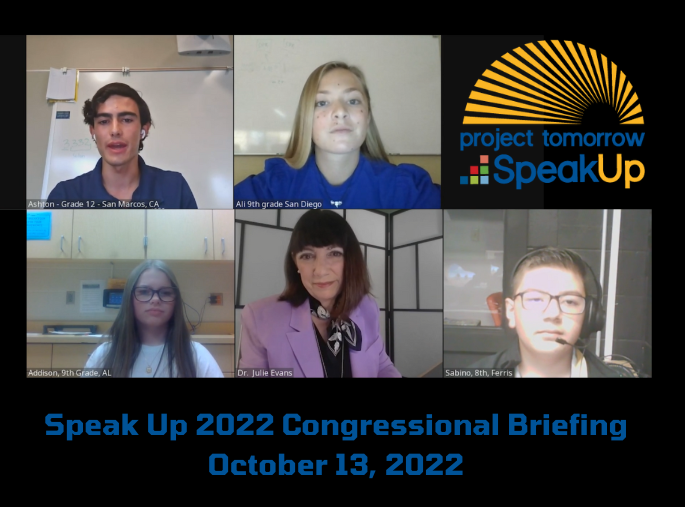
Speak Up Data and Research
Project Tomorrow facilitates the annual Speak Up Research Project to help K-12 education leaders effectively collect and leverage the views of your stakeholders as a planning and decision-making asset. Every K-12 school and district is eligible to use our normed suite of online surveys for K-12 students, parents, teachers, and administrators. Project Tomorrow manages the data collection and reporting process for all participating schools and districts as a pro bono service so that cost is never a barrier to listening to the views and voices of your stakeholders. We are very grateful to our friends at TCEA for their long-standing support of Speak Up. Learn more about how your school and district can utilize the Speak Up survey and reporting assets here. Take the survey here.

